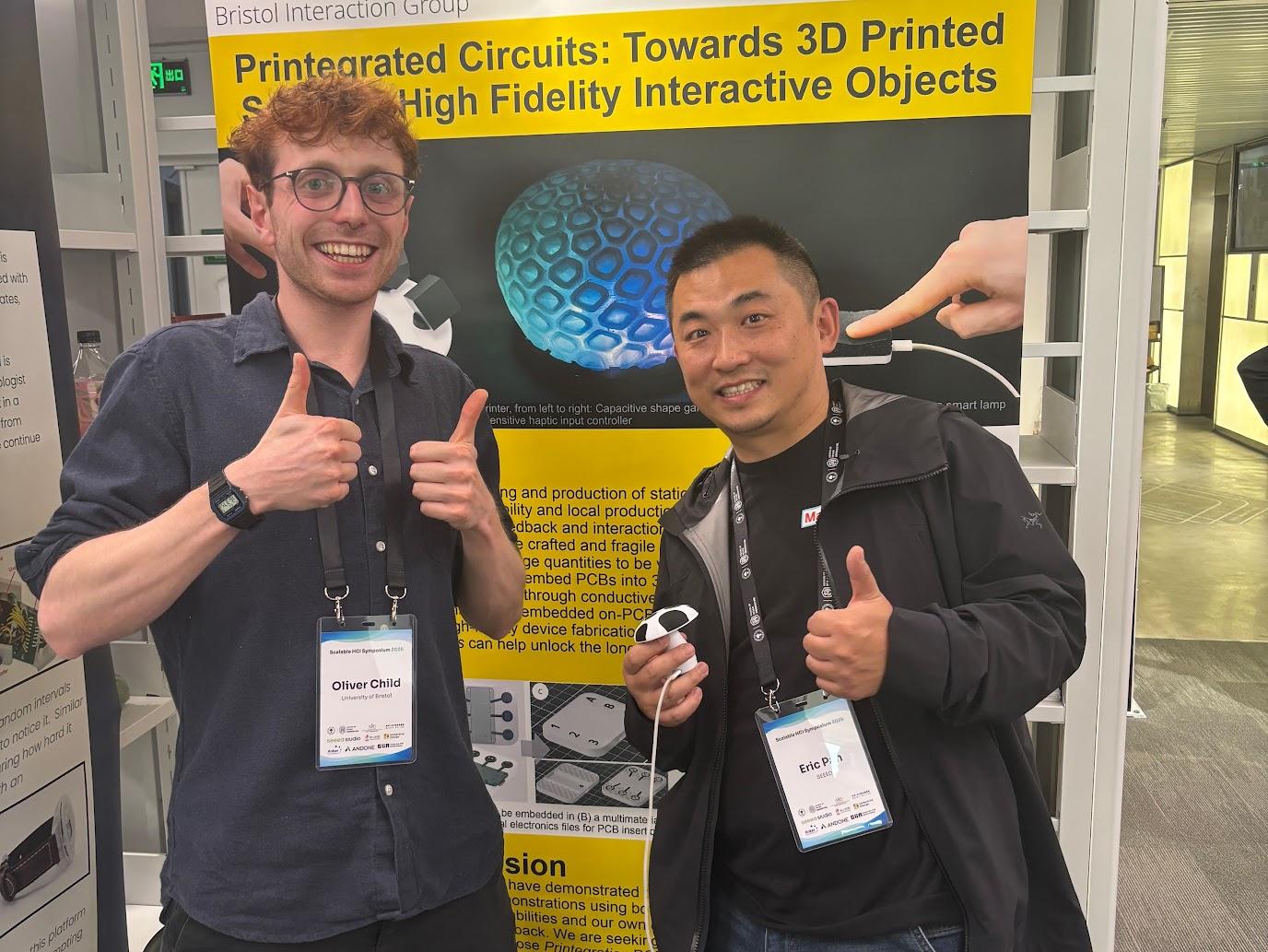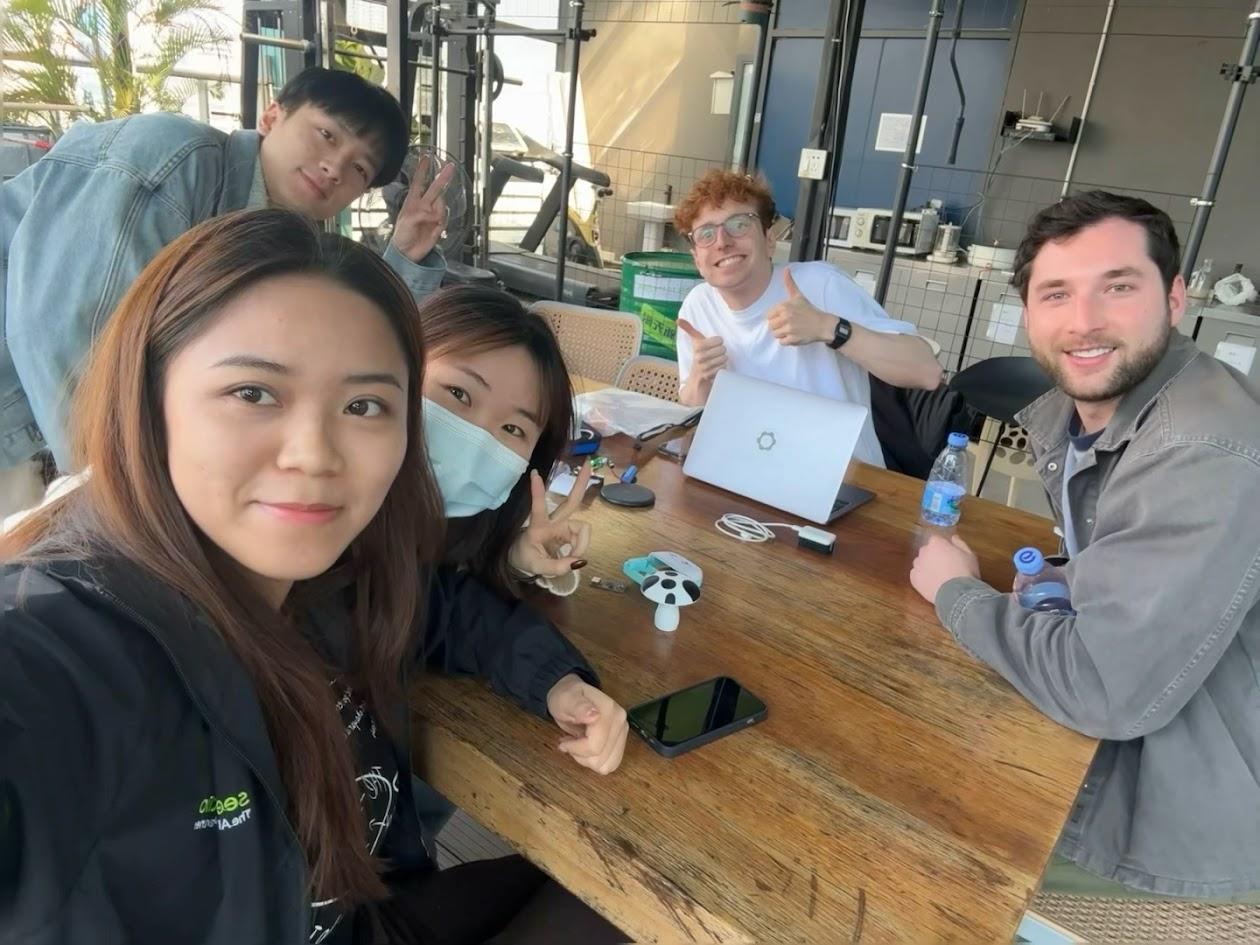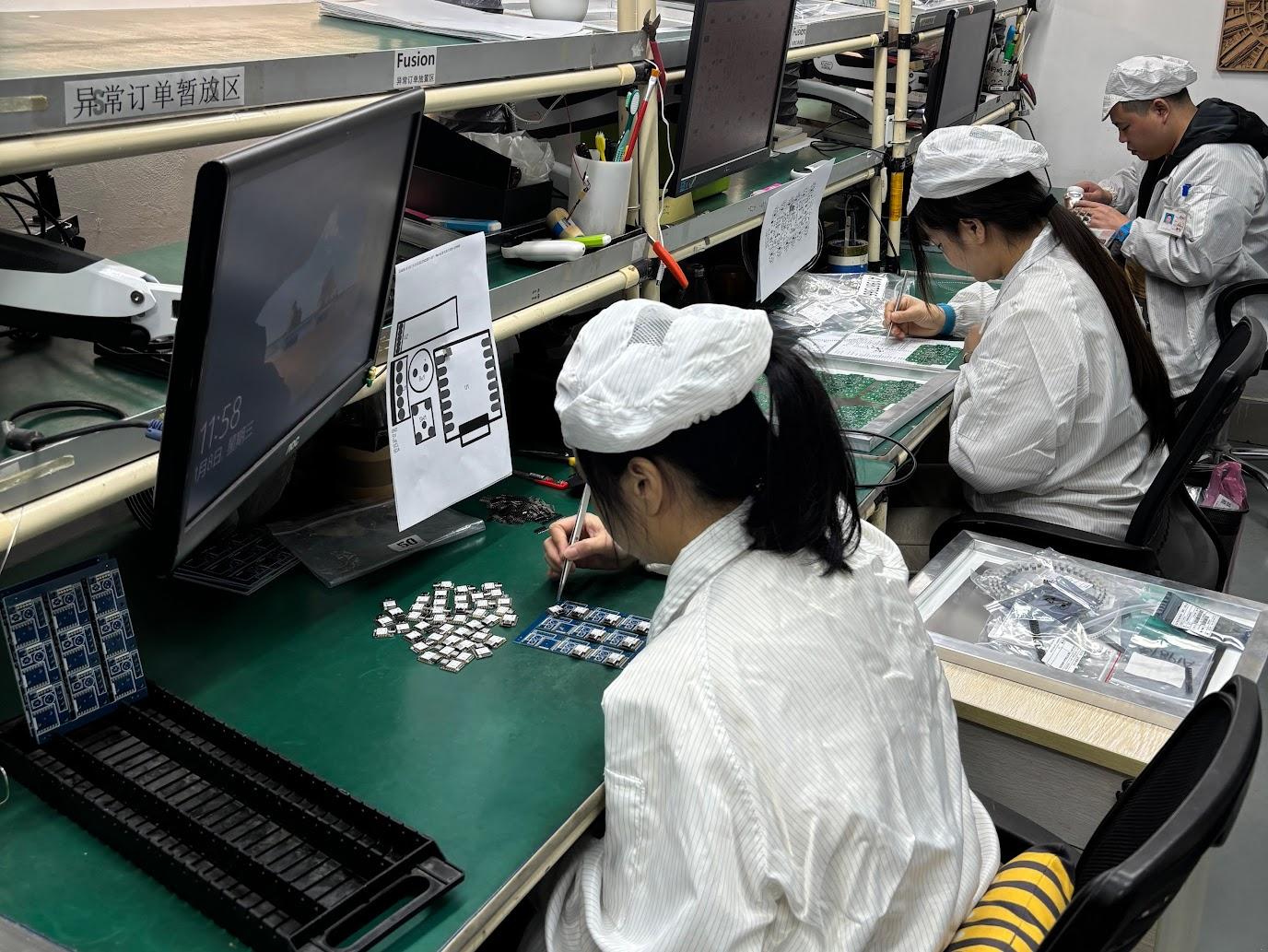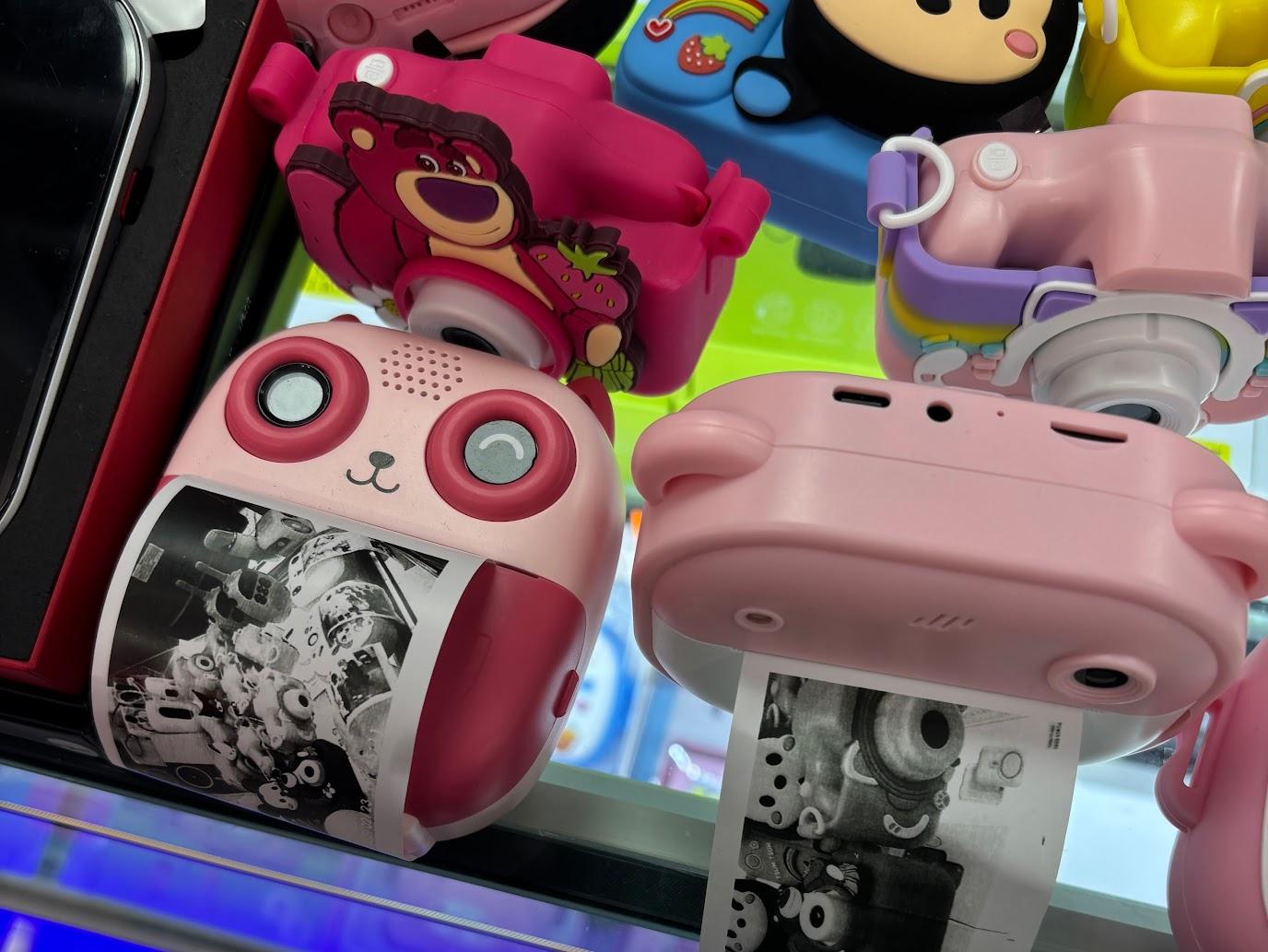
The pro² Residency Scheme
Overview
pro² is pleased to announce an open funding call for international and industrial residencies (The pro² Residency Scheme). Applications must propose ideas which align with the pro² mission to make it easier for people to make digital devices in low volumes.
Our mission
Serious challenges begin to emerge when people try to manufacture digital devices in low volumes or using unusual materials. As a result, many devices that would improve people’s lives never make it to market. To make low-volume production easier, pro² focusses on three main themes:
- Prototyping with Emerging Materials
- Isotyping: Refining and Scaling
- Infrastructure: Device Production
We strongly encourage all funding applicants to visit our webpage Why pro²? to learn more about our mission and three themes ahead of applying.
Residency Scheme awardees can apply for funding under one of three categories:
- U.K. Industry Residency: Available to researchers to gain first-hand experience of a U.K. industrial context through onsite placement, with awards up to a maximum of £5,000.
- U.K.-Overseas Residency: Staff from U.K. Universities can apply for funds to visit overseas institutions to strengthen their research and impact, with awards up to a maximum of £10,000.
- International-U.K. Residencies: International collaborators can spend up to three months hosted at a U.K. University, with awards up to a maximum of £10,000.
We expect a carefully planned and hosted visit to last between one and three months, during which the visitor will undertake world-leading, curiosity-driven research in partnership with their hosts. In all cases, budgets will be awarded to the U.K.-based institution which is eligible to hold UKRI funding: for residencies in industry (1) and overseas hosts (2), the visitor’s institution will be awarded the funding. For inward international residencies in the U.K. (3), the host institution will be awarded the funding.
Residency Priorities
- Applicants must engage in activities that contribute directly towards the development of new tools, techniques, processes or platforms.
- The new creation must be effective in making it easier for a person or organisation to replicate a prototype of a digital device.
- The prototype in this case can include either conventional or unconventional electronics.
The residency will encourage long-lasting partnerships, developing research or impact through co-authored publications, collaborative funding bids, or impact development. In addition to working with their host and colleagues, visitors should have the chance to schedule internal or public-facing activities through their host institution. The pro² residency scheme therefore offers mutual benefits for both the visitor and the host. Over time the cumulative effect of these collaborations is intended to produce a community of scholars and advancement across pro².
We will review applications in quarterly batches, so you can expect a decision within at most three months of applying. Please read the ‘Guidance for Applicants’ below and note in the assessment section that we will anonymise your application for initial review so please bear this in mind when writing. Successful funding will be dependent on approval of the grant from our compliance team who will be assessing the application against export control legislation, The National Security and Investments Act, sanctions that are currently in place and the ATAS scheme. Please try to ensure your proposal takes this into account, and in some cases be prepared to wait longer for a decision whilst you’re application is being considered.
To apply, please submit your funding application form and partner letter(s) of support to admin@prosquared.org.
| The pro² Residency Scheme | |
|---|---|
| Maximum award | £5,000 or £10,000 |
| Opening date | 19th September 2024 |
| Closing date | Open call, quarterly batched reviews |
| Download | Application Form |
Guidance for Applicants
Each residency is expected to last between 1 and 3 months. Exceptions will be considered to visit durations but not to funding limits. Residencies within the U.K. must not exceed £5,000 (100% Full Economic Cost (FEC)), while international residencies in either direction must not exceed £10,000 (100% FEC). Funding will be provided under this scheme by pro² at 100% FEC. All costs should be inclusive of VAT and/or any other applicable tax. The terms and conditions for UKRI funding apply. Applicants must demonstrate in the application form how the funding will be spent. Funding should only be used for direct costs such as travel, accommodation, equipment and consumables. It is not intended to be used to cover salary costs. The sub-award document detailing the terms and conditions of the grant is available in the ‘Useful Documents’ section below. Please ensure these terms are acceptable for your organisation prior to applying for funding.
Proposals should be costed and approved by the applicant’s organisation before submission.
All funding recipients must be members of the network. It is free to join so please register for pro² if you haven’t already.
Each residency must include one visitor and one host. The Principal Investigator (PI) for the funding must be based at a U.K. institution eligible to receive UKRI funding, this could either be the host’s or the visitor’s institution: in the case of industry and overseas visits, we expect the PI to be the visitor and for the visitor’s institution to hold the funding; for inward international residencies, we expect the PI to be the host and for the host institution to hold the funding. No staff costs are allowed for the visitor or the host, and additional staff costs are also not eligible under this scheme.
Eligibility for the roles listed above is in line with EPSRC funding rules. This means that, inter alia, the PI’s contract must outlast the secondment duration. If a PhD student wishes to apply as a visitor, a member of staff such as their supervisor should agree to act as PI for the funding and this should be indicated on the application form.
Your application must be signed by both host and visitor representatives to indicate agreement to terms and conditions, and include costings prepared by the PI’s institution. Additional contributions by the PI’s institution and/or partner to the secondment are welcome but not mandatory.
- Does the application clearly demonstrate how the project contributes to solving a problem? Consider the likely impact of the work within and outside of academia.
- Could the project be considered 'novel' within the context of the proposed field of research?
- Realistic and achievable objectives and workplan.
- Is the project applicable to pro² objectives?
- Adequate consideration of sustainability. Environmental damage from the production and inappropriate disposal of electronics waste (e-waste) is an increasing problem. We would like to see how sustainability has been considered in the project, from sourcing components to the impact of your residency on the environment. Additionally, we would like to know why you feel it's important to travel for this collaboration, rather than work together virtually.
We particularly encourage applications from candidates with characteristics that are often underrepresented in this area of expertise such as women, non-binary people, people of colour, LGBTQ+ people and people with disabilities.
All applicants will have the opportunity to work with our research designer from the beginning of their residencies. The research designer will work with you to find innovative ways to visualise your work and communicate it to a diverse audience. We're keen to utilise interesting and accessible ways to communicate the outputs from your work, therefore, rather than a traditional written report, we will be exploring the most appropriate way to do this and asking for your ideas in the application form. The research designer will work with you to create the agreed format for reporting your funding outcomes. The format must cover:
- The intended outcome of the residency and whether it was achieved
- Outputs created as a result of the residency, including papers for publication
- Any evidence you have or plan to collect of the benefit of your outputs to end-users
- The ways in which your output is environmentally sustainable
- Whether your collaboration will continue beyond the residency period.
The goal of the pro² network is to improve digital device production for all. To that end, we stipulate that any IP created with pro² funding should be available for all, via open access, for any purpose. Please see the sub-award agreement template.
If you have any questions about the funding or application criteria, please contact Sarah Hughes or Maura Lydon at admin@prosquared.org.
pro² handles all personal data in accordance with current U.K. data protection legislation and the EU General Data Protection Regulation (GDPR) where appropriate.
Glossary

Digital device
A physical piece of equipment that contains a computer or microcontroller. Today, myriad devices are digital including smartphones, tablets and smartwatches (PC Mag).

Isotype
An ‘equal’ copy of a prototype. It is likely that a prototype will need to go through one or more steps of refinement to (a) allow it to be replicated more easily, so that isotypes can be produced, and (b) to ensure it is suitably robust and performant that it’s useful to make isotypes, e.g. for technical testing or user evaluation. Isotypes are, however, unlikely to be sufficiently refined to qualify as a products. [NB Isotype already has meanings in the specific contexts of biology, crystallography, immunology and picture language, Collins Dictionary].

Platforming
A solid technological foundation upon which products can be created, incorporating open access to the necessary knowledge, standards, tools, capabilities and facilities [NB Platforming already has meanings in the specific contexts of petroleum refinery (Collins Dictionary) or video gaming (Wiktionary)].

Producer
An individual or organisation taking a leadership role in the creation of a product, inclusive of the prototype to product phases [NB Producer already has meanings in the specific contexts of entertainment production (films, music etc) and industry, Cambridge Dictionary].

Product
something that is made to be sold, usually something that is produced by an industrial process (Cambridge Dictionary). Products must provide sufficient utility to justify the cost of production and operation, must comply with local laws and regulations, and may become relied-upon by their users, requiring practical and cost-effective ways of supporting their on-going use.

Prototype
the first example of something, such as a machine or other industrial product, from which all later forms are developed (Cambridge Dictionary).





